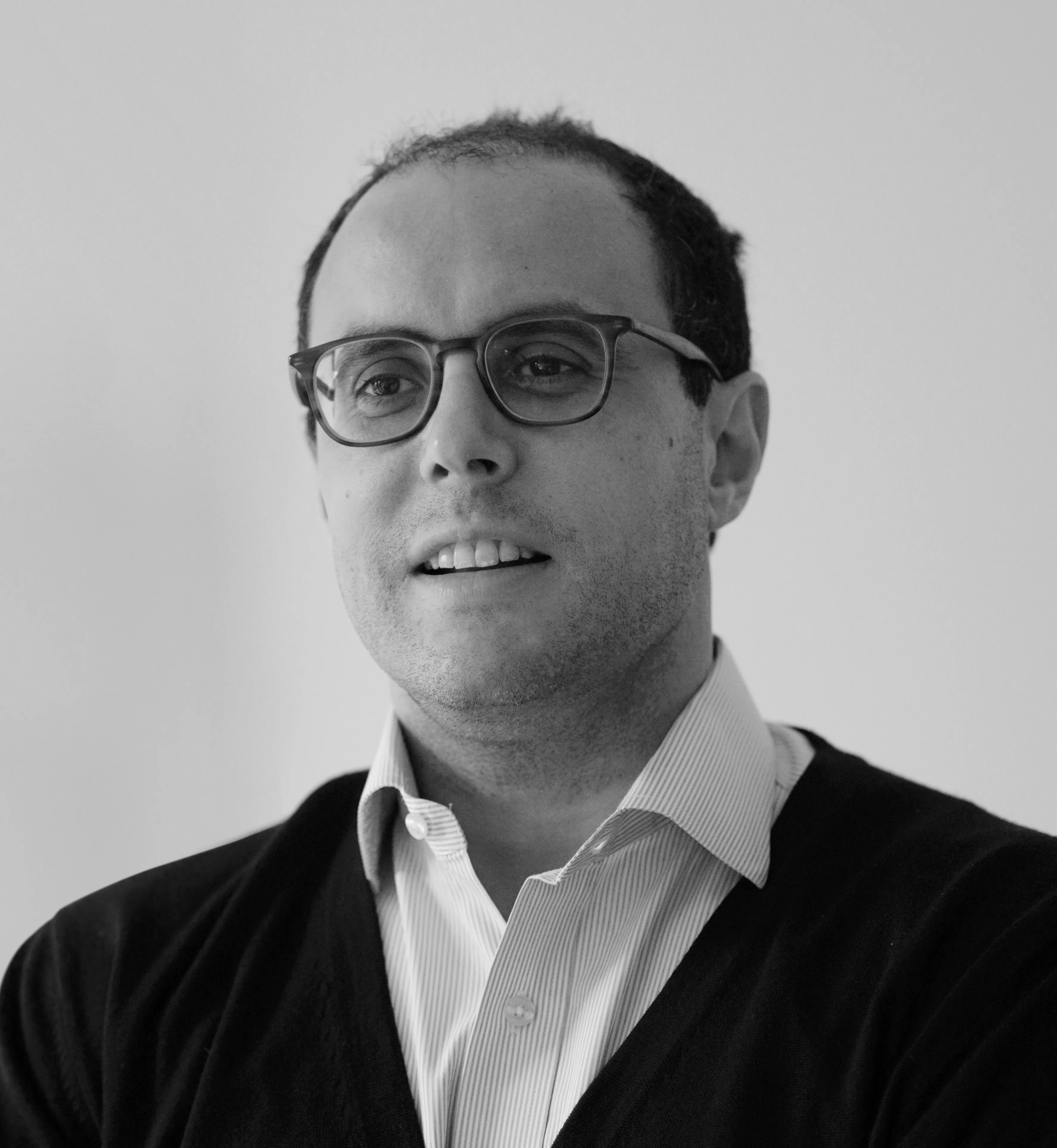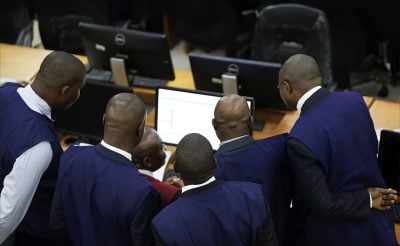
Patricia Adongo Ojangole, MD of the Uganda Development Bank Ltd (UDB), is very pleased at the status of the Bank today – but this was not always the case during a turbulent early phase.
After many years of poor performance and little impact in the last decade, the Bank has discovered its mojo and is making such an impact on the Ugandan economy that the government has incorporated it as a tool in its private sector development kit.
But it took not only time but also great personal risk to Ojangole to get to this position.
The Bank was first set up in 1972 but quickly joined the ranks of state-owned institutions that succumb to poor management, corruption and insider dealing – often the bane of such initiatives on the continent.
It survived the wave of privatisation in the 1990s but was no closer to delivering on its mandate when Ojangole, an accountant, joined as the chief internal auditor in 2011. What happened next was pivotal to the fortunes of the Bank.
“When I came in, the Bank was not performing. We had non-performing loans of more than 60% and a disclaimer of opinion from the external auditors. So when I came in, the Board asked me to conduct a special audit on a poorly performing loan product. The then CEO and his deputy were implicated – so they were suspended.”
With much of the management following them out of the door, Ojangole was asked to step in as acting CEO in 2012. The drama, however, was only just beginning.
Related articles
- Bank of Uganda: ‘Oil will attract FDI in excess of $15bn in medium term’
- African banks progress towards digitalisation
- African bank profits up but productivity remains low
Legal battles
With a set-up including ousted members of staff and their accomplices, Ojangole soon found herself implicated in various charges. She was appointed CEO in November 2012 but in February 2014 a magistrate in the Anti-Corruption Court ordered her arrest on alleged charges of victimisation of a whistleblower and conflict of interest.
She was suspended from the office and made subject to full trial and prosecution. The suspension was quashed by Judge Stephen Musota on 14 April 2014 in a review of all actions leading to the arrest, and she was able to return to the office, but the trial and prosecution went ahead, until 30 June 2014, when Judge Lawrence Gidudu of the Anti-Corruption Court acquitted and discharged Ojangole of all the charges against her due to lack of incriminating evidence.
Fully exonerated after winning the legal battles, she cemented her legitimacy and her mandate. This empowered her to embark on the mission she had set herself – the transformation of a national bank that was doing so poorly that no one even seemed to know about it, into an entity that would play a key role in the government’s agenda for private sector development and job creation. “This is when I really started building,” she recalls.
This meant overhauling the Bank’s processes and creating a new working culture. This first required the right assistance, meaning getting someone with the right experience to help. “We contracted a firm from Canada, IFCL, to come and work with our team to look at all our practices, structures and processes at UDB and bring them in line with national development bank global best practices.
“I told them everything about the institution,” recalls Ojangole “and they came up with a long set of recommendations.
“There were some 250 recommendations in terms of setting up the structures and having the right systems in place. That’s when we came up with issues like ‘reporting of development impact’ – to show that we are not there to solely make profits but to have significant impact on our stakeholders. We also focused on new issues like environmental, social and risk management and had to mainstream these in the business.”
Culture change
The journey had begun but there was still some way to go.
Along with the previous systems, it was also important for the culture to change. This meant getting in a new crop of people who understood and were fully committed to the new way that was emerging. Fortunately, the Bank had a rather small staff and it was possible, with expansion, to bring in new people who fit the bill.
“With time, the old culture was phased out so now we have a new culture,” Ojangole recalls.
She takes great pride in the governance structures that are now strictly adhered to. She credits the shareholders and the Board for respecting the company status of the Bank and letting the Bank be independently run.
For example, when it comes to lending in particular, she says: “We have our Board Credit Committee and Management Credit Committee. So the management recommends papers for approval which are then taken to the Board. The Board sets policy and we appraise all projects within those policies.
“We cannot take anything to the Board that is outside those policies because they will not approve it. That is how it works and so our credit decisions are very independent.”
Ojangole says controls are tight, and every borrower has to submit to the Bank’s stringent processes and gain approval on the merits of the application. “This is Ugandan taxpayers’ money, and the government, especially the President, has ensured that the Bank is adequately capitalised so that capital is available for the private sector. It is our duty to manage the funds under our custody well,” she says.
With every stakeholder of the Bank now aligned, Ojangole feels fully confident about the Bank and the path it is on.
“Our customers who are Uganda’s private sector and other stakeholders have a renewed confidence in the Bank. Everyone is supportive and we have seen many funders increasing their support for the Bank as well.”
Healthy balance sheet
The most accurate way to gauge the health or otherwise of a company, particularly a bank is the status of its balance sheet. In this aspect, the UDB is in robust health – its balance sheet stands at $400m in December 2022, from only $30m in 2012. The current number one priority for the Bank is to grow its funding base and there are plans to raise an additional $1bn over the next three years.
The Bank has secured some commitments from multilateral and development finance institutions in Africa and beyond, totalling over $500m, and is currently working with the funders and through government processes to have these materialise.
Although the Bank is not regulated by the central bank, as is the case with most banks, it has demonstrated that good governance and competent leadership are critical for its success.
To provide additional comfort to all its stakeholders on how the Bank is run, UDB undertakes a number of reviews, accreditations and certifications, all of which have returned positive results to the Bank. It undergoes international credit ratings by Fitch, AADFI prudential standards ratings, and has won awards in sustainable finance among other areas from bodies including the Institute of Corporate Governance and the ICPAU
Support from the top
Its unique structure means that UDB can sometimes get what its competitors might consider an unfair boost from the nation’s chief executive. The government now regards it as an integral part of the national development agenda and is keen to support it not just with the capital it needs, but with some vigorous advocacy as well.
There is good reason to root for UDB. Like across many countries on the continent, the cost of capital is notoriously high in Uganda. The leadership in government therefore sees the national development bank as a vehicle to force down rates or at least provide citizens with a cheaper alternative. Its track record in supporting the underserved helped it in its quest to garner support in the form of additional capital, which led the Bank to reduce its cost of borrowing to currently about 50% below the market rates.
Does this mean that commercial banks are being unfairly crowded out? Ojangole doesn’t think so. For example, UDB does not do much in the retail business space, personal lending, mortgages, real estate or in trade finance, etc. “Our interventions are in sectors that the commercial banks consider risky such as agriculture and manufacturing, consisting mainly of start-up SMEs that require patient capital. We are careful to be complementary to the commercial banks to a large extent and there are a number of ways that we collaborate and complement each other, rather than compete with them.”
Unique role
The key thing is, UDB has a unique role to play and has a structure that enables it to do so. “The business environment is really tough right now and the cost of capital is not helping those smaller businesses and entities. Unlike the commercial banks, however, we can approach it differently because our mandate is to support the private sector with affordable credit and we do not have to worry about outsize profits because the government is not going to ask us for that.”
Without the pressure to return dividends to shareholders, Ojangole’s focus is on development impact. How are the loans they are providing helping start and sustain businesses? How many jobs have been created? How is the Bank contributing to the government’s strategic goals of boosting key sectors such as agri-business, industrialisation and the services sector?
Those are the kinds of questions that she wrestles with on a daily basis. As is future-proofing the Bank. “First of all, as an institution you really need to be sustainable before you can talk about helping anyone else.
“There are a lot of disruptions with technology and digitalisation and you may find that the businesses you are supporting go out of business when you have a long-term facility with them so you have to look at your portfolio in the light of these factors and in a holistic manner,” she explains.
Sustainability
Ojangole returns to the question of sustainability more than once, as she believes it is central to the Bank’s growth and ambitions. She says the Bank takes a broader view of the concept than is typical in the industry.
“Without an economy and society, there will be no business for us so you have to position yourself to address the needs of all your stakeholders.”
In other words, banks must work to support the people, the economy and the environment in which they operate as a matter of their own survival as functional entities.
“They have to know and understand all the factors and trends that would impact economies and societies and have in their business the frameworks to take care of these. So that’s my understanding of sustainability – it’s broad and holistic,” she offers, “not just the ESG concept that many businesses will report about and think that they are sustainable businesses.”
The Bank, she says, has been able to demonstrate how much it is giving to society, to the environment and the economy, providing a measure of success that goes beyond profits. “The Bank’s focus is on implementing its sustainability strategy, and as a result, it makes and reports profits as an outcome.”
A successful recapitalisation exercise will put it in a position to make an even greater impact, including in climate finance, where it has a pipeline of projects. It will also help the Bank along the path to achieving the lofty goals its MD has set.
“My ambition is that this bank should become the biggest bank in the country,” she says with a laugh that barely disguises the utter seriousness of the sentiment.
Want to continue reading? Subscribe today.
You've read all your free articles for this month! Subscribe now to enjoy full access to our content.
Digital Monthly
£8.00 / month
Receive full unlimited access to our articles, opinions, podcasts and more.
Digital Yearly
£70.00 / year
Our best value offer - save £26 and gain access to all of our digital content for an entire year!

 Sign in with Google
Sign in with Google 



